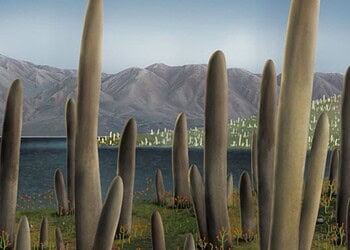Manchester officials have announced plans for a City of Trees: 3 million new trees will be added to the city area over the next 25 years, one for every city inhabitant.

Trees do wonders for a city. They improve air quality, help regulate temperature, and reduce stress. But even so, most cities are ignoring their green spaces in favor of improving traffic or urban development. The concrete jungles are becoming less and less green in many parts of the world, and this is what Manchester wants to avoid — but planting a whole lot of trees.
It’s not just about planting new trees, however. A lot of it about making people understand the benefits of trees and creating an interactive relationship. City of Trees director Tony Hothersall explained that there are three main benefits to this scheme:
“One is to plant three million trees, ie. a tree for every man woman and child, over the next 25 years,” he said.
“Next, we are very much focused on bringing existing woodland into management because there is no point in planting new woodland if you can’t manage what you’ve got already.
“Finally, we want to engage people a lot more in their natural environment; in planting trees; in managing areas; in understanding more about the benefits that trees and woodlands bring to our society.”
The trees are not going to be all in one place, but rather spread around the city. Basically, they want to green up the entire city and bring a lot of biodiversity along with the trees. Furthermore, people have to “grow” with the trees as well. The first stage is raising awareness and next one is involving the local communities in the project — that’s why the tree placement is extra important.
“It is really about planting trees wherever it’s appropriate to put trees,” he explained, “what is really important is it’s about the right tree in the right place.”
What we really dig about this project is that it keeps the full frame of sustainability in mind and it understands the significance of having natural oases in cities. Too often cities forget how vital green areas are to a city.
“Greater Manchester wants to be a world-class city region. We have a lot of fantastic built development going on, but the natural environment needs to keep up with that,” Mr Hothersall said.
This could be even more important in a global warming context. We know that cities are hotter than the surrounding environment (especially on weekdays) and that temperatures are expected to rise more and more in following decades. That takes a big toll on the health and life quality of the city’s inhabitants. Hothersall continues:
“In terms of health… woodlands can do great things in terms of air pollution reduction… [and] can help to screen for noise pollution. They can also help cities and towns become more resilient to climate change both in terms of things like reducing the urban heat island effect and also reducing things like risk from surface water flooding.”
Lastly, trees also provide a number of secondary environmental services — many of which we don’t even properly understand. For example, researchers from the University of Manchester are working with people in the project to see how tree planting could reduce flooding in built-up areas. Bravo, Manchester, bravo!
EDIT: This article had a massive error in its title, thank you to so many of you for pointing it out. We apologize!






